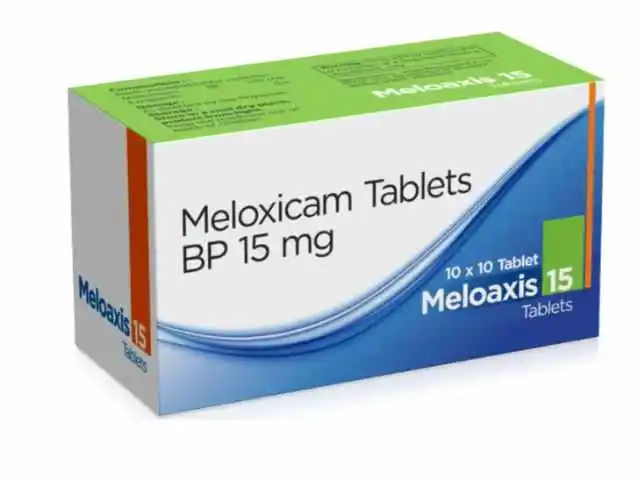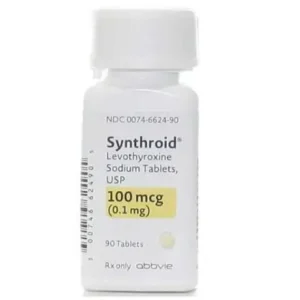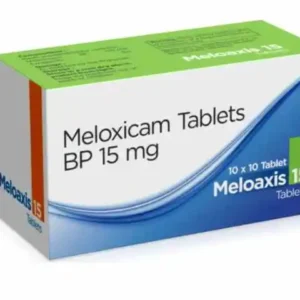Meloxicam is a nonsteroidal anti-inflammatory drug (NSAID) that is commonly prescribed to relieve pain and reduce inflammation in various conditions. It is available both as a prescription medication and in lower doses as an over-the-counter (OTC) medication in some countries.
Here is some key information about Meloxicam:
- Indication: Meloxicam is primarily used to treat pain and inflammation associated with conditions such as osteoarthritis, rheumatoid arthritis, and other musculoskeletal disorders. It can help relieve pain, reduce inflammation, and improve joint mobility.
- Mechanism of Action: Meloxicam works by inhibiting the activity of enzymes called cyclooxygenases (COX-1 and COX-2), which are involved in the production of prostaglandins. Prostaglandins are chemicals in the body that promote inflammation, pain, and fever. By reducing prostaglandin production, Meloxicam helps alleviate these symptoms.
- Dosage: The dosage of Meloxicam varies depending on the condition being treated and the individual patient. It’s important to follow the dosing instructions provided by a healthcare provider or on the medication label. Generally, it is taken once daily.
- Forms: Meloxicam is available in oral tablet and oral suspension forms for prescription use. There are also OTC versions of lower-dose meloxicam available for temporary relief of minor aches and pains.
- Side Effects: Like all NSAIDs, Meloxicam can have side effects, which may include stomach upset, indigestion, gastritis, and an increased risk of gastrointestinal ulcers and bleeding. It is important to take Meloxicam with food or as directed by a healthcare provider to minimize stomach irritation. Additionally, it may increase the risk of cardiovascular events, such as heart attacks and strokes, especially when used at higher doses or for prolonged periods.
- Interactions: Meloxicam can interact with other medications, so it’s important to inform your healthcare provider about all the medications and supplements you are taking to avoid potential interactions.
- Precautions: Meloxicam should be used with caution in individuals with a history of stomach ulcers, bleeding disorders, kidney problems, and certain heart conditions. It is generally not recommended for use during the late stages of pregnancy.
- Generic Versions: In addition to the brand-name Meloxicam, generic versions of the medication are available, offering the same active ingredient at a lower cost.
It’s important to use Meloxicam only as prescribed by a healthcare provider or as directed on the medication label, and to report any side effects or concerns to your healthcare provider. If you have questions or uncertainties about this medication, consult with a medical professional for guidance tailored to your specific medical condition and needs.






Reviews
There are no reviews yet.